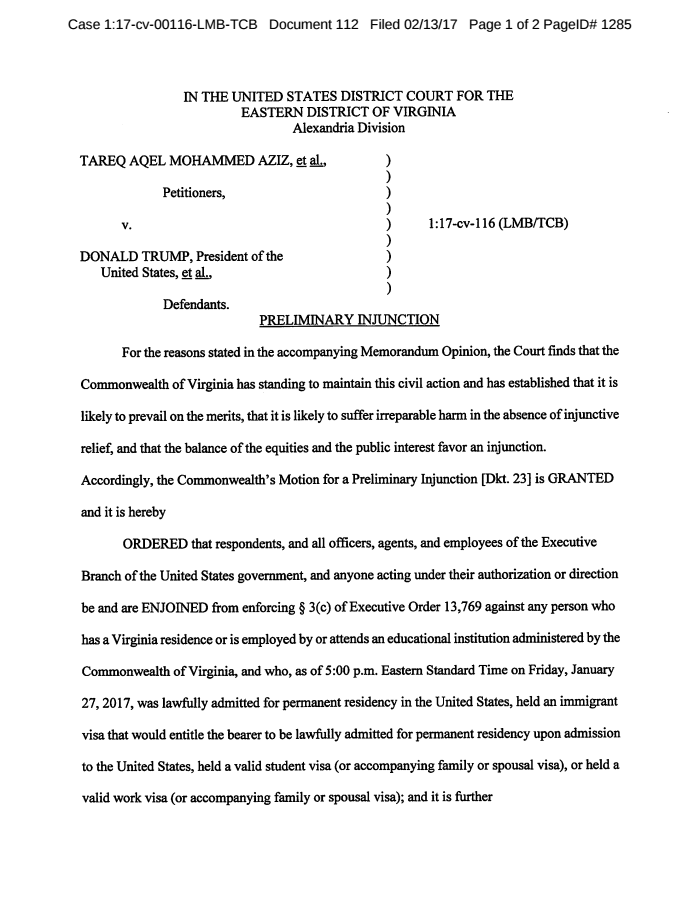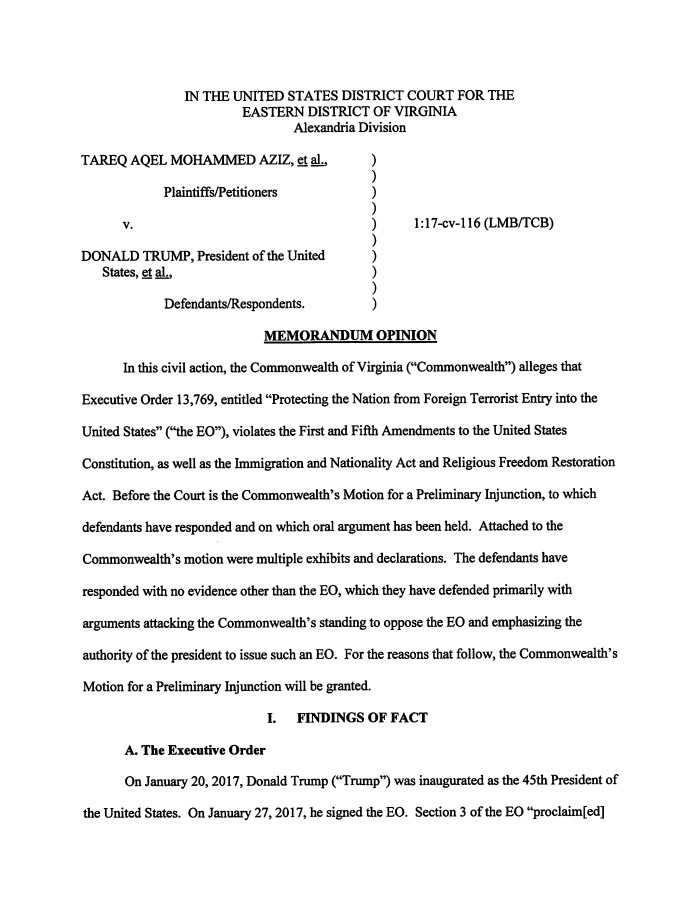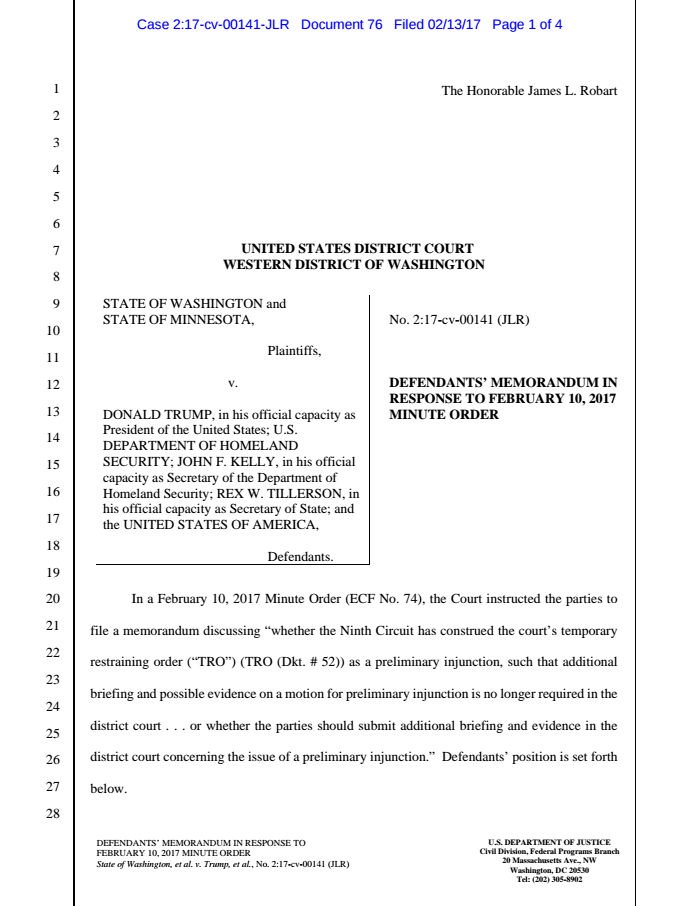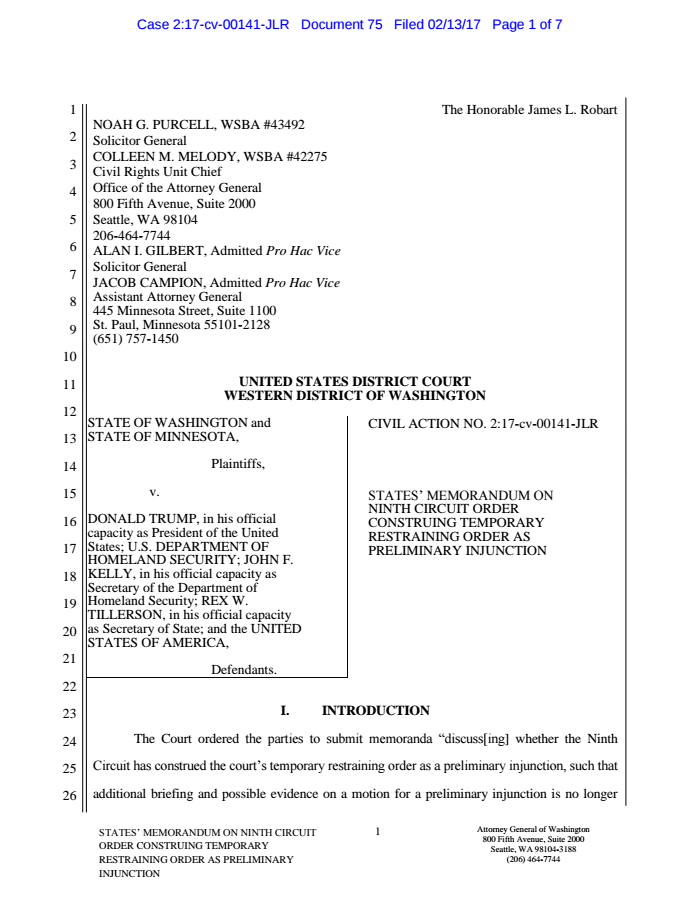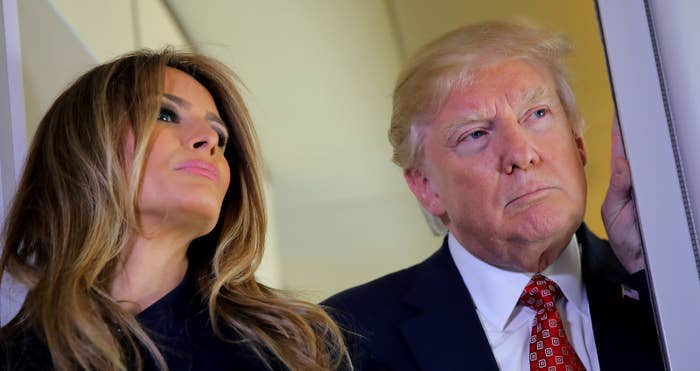
WASHINGTON — While the Trump administration decides how to proceed with its fight against challenges to the president's refugee and travel ban, federal courts in Washington and Virginia on Monday dealt legal victories to those challenging the executive order.
At a conference at the district court in the Washington v. Trump case that has led to the halted enforcement of the ban, US District Judge James Robart decided on Monday that the underlying lawsuit by the states of Washington and Minnesota can proceed while the US Court of Appeals for the Ninth Circuit addresses questions relating to his initial order.
Reuters reported that Robart said "he was 'surprised' the Justice Department would seek a delay given Trump's angry tweets over the 9th Circuit ruling."
Across the country, in Virginia, US District Judge Leonie Brinkema issued her own injunction in the case, finding a "likelihood that the Commonwealth will prevail on the merits of its Establishment Clause claim," and halting enforcement of the visa portion of the executive order against Virginia residents affected by the ban.
Brinkema — following a hearing on the issues this past week — pointed to Trump's campaign statements calling for a ban on Muslim immigration and more recent statements by Trump adviser Rudolph Giuliani about being asked to help craft such a ban as evidence that the executive order was not motivated by "rational national security concerns."
"The Commonwealth has produced unrebutted evidence supporting its position that it is likely to succeed on an Establishment Clause claim," Brinkema wrote. "The 'Muslim ban' was a centerpiece of the president's campaign for months, and the press release calling for it was still available on his website as of the day this Memorandum Opinion is being entered."
Brinkema went on to say in a footnote that she gave "little weight" to statements from administration officials that the travel ban was not targeted at Muslims, since they were made after legal challenges were filed.
Like the Ninth Circuit, Brinkema rejected the Justice Department's argument that the court lacked jurisdiction to consider the constitutionality of the executive order.
"Maximum power does not mean absolute power," Brinkema wrote. "Every presidential action must still comply with the limits set by Congress' delegation of power and the constraints of the Constitution, including the Bill of Rights."
In filings earlier Monday, the Trump administration appeared to announce that it will allow things to play out at the US Court of Appeals for the Ninth Circuit for now in litigation over President Trump's refugee and travel ban — rather than seeking a stay of the nationwide order halting enforcement of the ban from the Supreme Court.
"Further proceedings in the Ninth Circuit will likely inform what additional proceedings on a preliminary injunction motion are necessary in district court," Justice Department lawyers wrote, referring to a Friday order from the appeals court announcing that a judge of that court had requested a vote on whether the appeals court should reconsider its earlier decision allowing the trial court order to stand.
The Justice Department announced the plans in a filing before Robart. Later Monday, the judge decided to proceed anyway, siding with the argument advanced by Washington and Minnesota.
"The Ninth Circuit’s ruling treats this Court’s prior order as a preliminary injunction, rendering further preliminary injunction proceedings unnecessary and allowing the parties to proceed directly to discovery," the state lawyers argued.
Saying that discovery "will not interfere with the case on appeal," the states argued, "To the contrary, it will allow this Court to consider the merits of the case in an efficient manner. Given the gravity of the States’ constitutional allegations, Defendants’ stated national security concerns, and the public interests at stake, the States respectfully submit that discovery should proceed without delay."
The Justice Department also Monday attempted to put an end to litigation over the ban in federal court in Michigan, arguing that the court lacks jurisdiction to hear the case because there is no "case or controversy" — a constitutional requirement.
In that case, Justice Department lawyers are urging the judge to dissolve — or end — the permanent injunction barring enforcement of the travel ban against green card holders because the federal government has since announced that the ban does not apply to green card holders (after shifting policies in the first days of the implementation of the order).
"Any dispute that might have existed due to 'reasonable uncertainty' surrounding lawful permanent residents ('LPRs') directly following the signing of the Executive Order, is now moot," the Justice Department lawyers argue, citing the Feb. 1 memorandum sent by White House counsel Donald McGahn to the heads of the justice, homeland security, and state departments.
The department has been arguing in court that the memorandum should be given the force of law in cases across the country — with little success.


